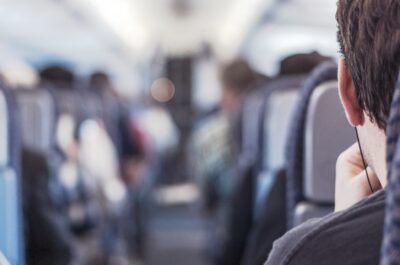Contrary to comments made by A4A and RAA in their motion, the tarmac-delay rules were not implemented only for ad-hoc weather delays. They were implemented to protect passengers from all extraordinary delays, regardless of the reasons.
“This is just when consumers will be needing the tarmac delay protections the most,” says Charles Leocha, Director of the Consumer Travel Alliance. “The airlines appear to be unable to comprehend that the fundamental purpose of the tarmac delay rule is to provide basic, humane treatment for the passengers entrusted to their care.”
In a decidedly anti-consumer request to the Department of Transportation (DOT), Airlines for America (A4A) and the Regional Airline Association (RAA) have asked for a temporary exemption from “tarmac-delay regulations for a period of 90 days or until the Federal Aviation Administration (FAA) sequestration furloughs end, whichever is longer.”
The response from the Consumer Travel Alliance (CTA) is, “No exemptions!” in the strongest terms. Such an action adds insult to injury by adding the possibility of tarmac delays to schedule uncertainty for passengers caused by sequestration. Rather than look towards confining passengers to planes in excess of three or four hours, airlines should explore alternative remedies for expected delays and cancellations.
Contrary to comments made by A4A and RAA in their motion, the tarmac-delay rules were not implemented only for ad-hoc weather delays. They were implemented to protect passengers from all extraordinary delays, regardless of the reasons. Airline actions since the implementation of the current tarmac-delay rules show that when properly incentivized the airlines can eliminate tarmac delays without extraordinary cancellations.
- Airlines should take actions to add flexibility for passengers to make their travels as smooth as possible, not to make advanced plans to keep them stranded on runways. Loosening airline restrictions that limit passengers’ flexibility in order to change flights and travel plans in reaction to possible delays is a consumer-friendly solution. Ironically, several airlines, while petitioning the DOT for more “flexibility,” have announced steep increases in change and cancellation fees that reduce passengers’ flexibility.
- The airlines, if faced with extraordinary delays, can work with the tools provided by the current tarmac-delay rules to fine-tune their schedule and implement plans similar to those that they use during periods of inclement weather.
- Airlines are operating fewer departures in 2012 than they did in the year 2000 with similar air traffic control staffing. Consumer organizations expect that the FAA will be able to mitigate massive delays and operate as efficient an air transportation network in the coming months as it operated in 2000 and 2002.
- DOT under the current rule has the flexibility to make a judgement call regarding fining of air carriers. In no circumstance should DOT provide airlines a carte-blanche exemption from the current regulations.
- It is, and should be, the business of airlines to adapt to current air traffic conditions as they find them, without needlessly degrading passenger welfare.
Two aspects of the airlines’ request are especially distressing. The first is the lack of logic in reducing consumer protections against delays at a time when, according to the airlines, delays are more likely to occur. The second is the apparent inability of the airlines to comprehend, even at this late stage, the fundamental purpose of the tarmac delay rule, which is to provide basic, humane treatment for the passengers entrusted to their care.
While suspending the rule and permitting the airlines to confine passengers for periods in excess of three hours might serve the airlines’ business interests, it certainly cannot serve the public interest.
CTA proposed several alternative proposals
Consumer Travel Alliance proposes that the airlines take actions within their control to allow passengers discretion to respond to the consequences of the FAA’s action by being allowed to make changes to their travel plans as possible delays unfold.
- Airlines should declare a moratorium on change and cancellation fees.
- Airlines coordinate with airports, code-share and affiliate partners mitigate impact on passengers.
- Airlines should look at flying fewer flights between some destinations with greater capacity rather than clogging the air traffic control system with small regional jets, especially on routes in and out of the NYC airspace where the major carriers use many regional jets rather than full-sized aircraft.
- If necessary, the airlines should promptly adjust their advertised schedules and notify the public accordingly.
Vicky is the co-founder of TravelDailyNews Media Network where she is the Editor-in Chief. She is also responsible for the daily operation and the financial policy. She holds a Bachelor's degree in Tourism Business Administration from the Technical University of Athens and a Master in Business Administration (MBA) from the University of Wales.
She has many years of both academic and industrial experience within the travel industry. She has written/edited numerous articles in various tourism magazines.











































































































































































































